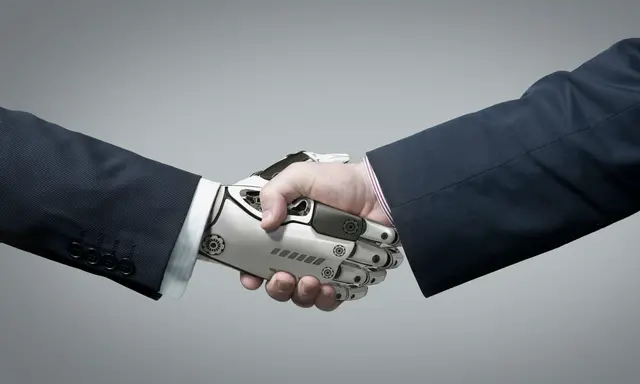Artificial intelligence (AI) will be used to enhance the natural kind under plans by Japanese electronics giants to develop AI tools to support corporate management.
Hitachi Ltd. is developing a device to help corporate management decision-making, such as on capital investment, while NEC Corp. is developing a system to forecast, among other things, the optimal stock quantity of merchandise items with variable demand.
Suppose, for example, that a user asks NEC’s forecaster: “The weather will be fine tomorrow. Should we increase our stock of ice cream?”
The system may return the answer: “You should stock up 100 pieces of ice cream,” complete with the underlying reasoning that “ice cream sells well when the temperature exceeds 20 degrees.”
The day when AI tools serve as management consultants may not be too far away.
The AI tool for supporting management decision-making, being developed by Hitachi, is capable of presenting grounds both in favor of, and against, a given proposal over matters of corporate management.
While the tool stops short of making a final management decision, it is characterized by its ability to “present rationales for both pros and cons without bias,” said Kosuke Yanai, a chief researcher on Hitachi’s development team.
Imagine the scenario where a user asks Hitachi’s AI system if electricity generated with renewable energy sources, such as solar power, should be introduced to their outlet.
The AI system will analyze some 1.2 million articles that appeared in newspapers, government white papers and other sources in a matter of two minutes and present opinions both in favor of and against the proposal.
It may say, for example, that the introduction of solar power has the advantage of helping to reduce carbon dioxide emissions but comes with the disadvantage of incurring initial costs.
But “actual scenes of management are nowhere near that simple,” Yanai said.
Analysis allows rationales to be presented on the basis of past events, but does not enable the forecast of what will happen in the future. The developers, who are going to test if the tool can be used in supporting corporate management, are hoping to put that to practical use in two to three years, Hitachi officials said.
Meanwhile, NEC is focusing on creating an AI system that can provide assistance to the management of shops and other retailers. The system will target goods whose sales vary with weather, such as ice cream, and draw on “big data” resources, sorted by weather, the day of the week and other factors, to forecast the quantity of sales, while at the same time explaining the reasons for the forecast.
The tool will help determine the quantity of stock to be ordered, and thereby reduce loss of opportunities, NEC officials said, adding that it will also allow the forecasting of the optimal timing for a customer to unsubscribe from a given service or the quantity of component parts that should be procured from manufacturers.
The developers have come up with a technology for allowing the data analysis to be conducted across multiple computers and for allowing the results to be displayed integrally on a single computer.
That allows more data to be analyzed with faster speeds and higher precision, the NEC officials said, adding that they hope to put the system to practical applications by the end of fiscal 2017.
(THE ASAHI SHIMBUN)
 简体中文
简体中文

